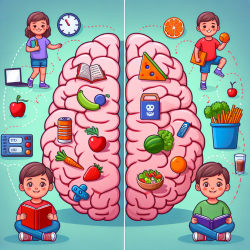Introduction
Attention deficit/hyperactivity disorder (ADHD) affects approximately 2%–5% of children, leading to significant challenges in educational settings. Traditional interventions often fall short due to their complexity and resource demands, leaving a gap for effective, flexible strategies that schools can implement seamlessly. A recent study titled "Investigation of the feasibility and acceptability of a school-based intervention for children with traits of ADHD: protocol for an iterative case-series study" offers promising insights into addressing these challenges through a novel approach.
The Study: A New Approach
The study introduces the "Tools for Schools FLEX toolkit," a digital resource designed to provide behavioral strategies tailored for children with ADHD traits. This toolkit aims to be feasible and acceptable within school environments, focusing on flexible, short-term strategies that align with teachers' preferences and the dynamic nature of classroom settings.
Key Findings and Implications
The research utilized a randomised iterative mixed-methods case-series design, involving eight primary schools and 16–32 children. The toolkit was refined iteratively, based on feedback from school staff, parents, and children, ensuring its relevance and practicality. The study's findings highlight several key outcomes:
- Feasibility and Acceptability: The iterative process ensured that the toolkit was adaptable and user-friendly, meeting the unique needs of each school setting.
- Behavioral Improvements: Initial indications suggest improvements in ADHD symptoms and classroom functioning, showcasing the toolkit's potential effectiveness.
- Stakeholder Involvement: The co-creation process with stakeholders, including teachers and parents, was pivotal in refining the toolkit and ensuring its alignment with real-world needs.
Recommendations for Practitioners
For practitioners looking to enhance their skills and improve outcomes for children with ADHD, this study offers valuable insights:
- Embrace Iterative Processes: Regular feedback and adaptation are crucial in developing interventions that are both effective and sustainable.
- Engage Stakeholders: Involving teachers, parents, and children in the development process ensures that interventions are grounded in practical realities.
- Focus on Flexibility: Short, flexible strategies that can be easily integrated into daily routines are more likely to be adopted and maintained over time.
Encouraging Further Research
This study underscores the importance of continued research into school-based interventions for ADHD. By building on these findings, future studies can explore the long-term effectiveness of the toolkit and refine its components further. Practitioners are encouraged to participate in research initiatives and contribute to the evolving landscape of ADHD interventions.
To read the original research paper, please follow this link: Investigation of the feasibility and acceptability of a school-based intervention for children with traits of ADHD: protocol for an iterative case-series study.










